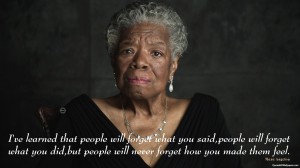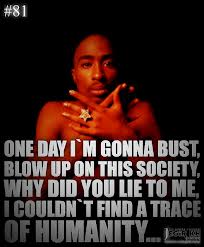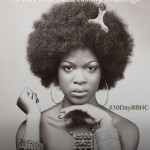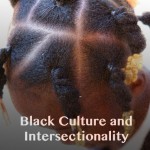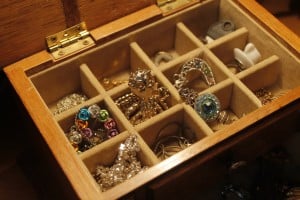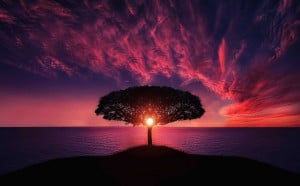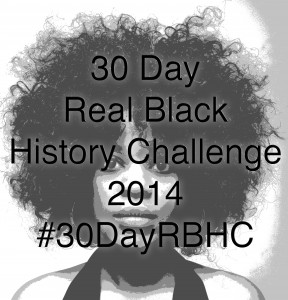 I cannot believe that week one is done already, but I am so EXCITED to share this first archive of this year. Three more weeks to go of information, and I am happy to be doing this with people who want to explore, unlearn, relearn, grow, and be change makers in our communities. Only together is this possible.
I cannot believe that week one is done already, but I am so EXCITED to share this first archive of this year. Three more weeks to go of information, and I am happy to be doing this with people who want to explore, unlearn, relearn, grow, and be change makers in our communities. Only together is this possible.
Enjoy the information of culture, privilege, and intersectionality in week one of the 2014 30 Day Real Black History Challenge.
Day 1:
* I want to set the theme of this next 30 days with incredible grace, the grace of Mumu Fresh. Bringing the beauty of her words, the flow of her knowledge, the infiltration of information wrapped in a theme that we groove to… while we learn and reflect.
We are already Royals. Forgotten in our own skin of the beauty and strength in which we were born. We are powerful, we are resilient, we are full of ancestral wisdom that brings about a reflection of the past that is unique.
In the words of Mumu Fresh:
“The ones you see stuntin’/ are the ones who never had nothing/ so first piece of the pie we tryna’ grab something/ snatching and running/ packing in gunning / landing a hundred/
Flashing n’ frontin’/ scared of everything but call it nothing/
We don’t know that old true blue blood slave money/ slave money/ war heroes
take it to their grave money/
cotton money/ cane money/ …
Diamond blood stain money/
They tell us to save money/ we know getting paid money/
Only talking small money/2 for 5 pack of pampers, black n’ mile money/ mattress piled high money/ we know sneaker fly money/
we know racks on racks on racks on racks on racks money/ what about that tax money
oil money/ Africa’s rich soil money/
so thick you cant fold money
British East Indian company old money/
Gold money
Lime stone/
Coal money/
Its like the whole world’s up side down
And the real royalty has been reduced to clowns
Lost in the sauce and we don’t know which way to go
They blew the nose off the sphinx so we’d never know
… We royal
Oh oh oh oh oh oh,
We’re greater than they say we are
so go ahead and call me star
Oh Oh Oh Oh oh oh
wake up if you dare
Lets get free from this love affair”
* Personal Reflections of Culture #1: Last week a close friend asked me when I got a perm; it took me a few minutes to realize she thought I had a curly perm. With the tightness of my coils, and the texture of my hair, I never really considered that someone would think that I did this in a shop. But after chatting with my husband about it, I realized that the texture, curl and state of black natural hair is not a normal think in this country. When we see people with curly hair like mine, the assumption is that it is done to be that way. Society is just not use to seeing Black girls with natural hair……
* “What has changed since the collapse of Jim Crow has less to do with the basic structure of our society than with the language we use to justify it. In the era of colorblindness, it is no longer socially permissible to use race, explicitly, as a justification for discrimination, exclusion, and social contempt.
So we don’t. Rather than rely on race, we use our criminal justice system to label people of color “criminals” and then engage in all the practices we supposedly left behind. Today it is perfectly legal to discriminate against criminals in nearly all the ways that it was once legal to discriminate against African Americans. Once you’re labeled a felon, the old forms of discrimination–employment discrimination, housing discrimination, denial of the right to vote, denial of educational opportunity, denial of food stamps and other public benefits, and exclusion from jury service–are suddenly legal. As a criminal, you have scarcely more rights, and arguably less respect, than a black man living in Alabama at the height of Jim Crow. We have not ended racial caste in America; we have merely redesigned it.” – Michelle Alexander, The New Jim Crow; Mass Incarceration in the Age of Colorblindness.
* My heart is so heavy with the gratitude I feel for the inspiration, love, and reflection of history that Maya Angelou has provided to me and people around the world. She is one of the mighty, mighty, mighty wise women of our time, and will now transition to be just as powerful as the Mighty Dead.
Blessed be Maya. May you get as much as you gave in your transition and beyond. I love you. The world loves you.
* Privilege… the buzz word that everyone tries to avoid; well not everyone. But it is the backbone of American culture, it is what this country relied on in order to build the capitalistic society based in an understanding that some should have the riches. From the natives to the Africans, American politics have relied on social policies that include regulating those who are less than deserving, or less than human, to fit the needs of others.
We cannot think that privilege does not exist when this society was built in privilege…..who has it, and who doesn’t. Peggy McIntosh called it the invisible knapsack of White Privilege because it is the things that are not thought about and yet give advantages to some that are not available to all. And yes, people still work for what they have (for the most part) but that is no different than for Black people. Slaves worked for everything that the owners got, while they got scraps, trauma and torture. They did not reap the benefits of their work, the wealth did not come to them.
We see that today in the way that privilege has trickled down to 2014, and what we still do not have equal access to as a whole system of people. Privilege is systemic. We have to understand that…. eventually.
“Access to privilege doesn’t determine one’s outcomes, but it is definitely an asset that makes it more likely that whatever talent, ability, and aspirations a person with privilege has will result in something positive for them.”
Here are just a few of the things that are more or likely to be true if one happens to have been born white in America…”
* “Out of the huts of history’s shame
I rise
Up from a past that’s rooted in pain
I rise
I’m a black ocean, leaping and wide,
Welling and swelling I bear in the tide.
Leaving behind nights of terror and fear
I rise
Into a daybreak that’s wondrously clear
I rise
Bringing the gifts that my ancestors gave,
I AM THE DREAM AND THE HOPE OF THE SLAVE!!
I rise
I rise.”
THANK YOU MAYA. WE ARE STILL RISING.
#30DayRBHC
* In order to understand the complexity of Blackness, you must consider the mask of survival we wear. Everyday. All day.
I wear this mask, my people taught me to wear the mask, society demands the mask.
Maya explains the mask in words I can not imagine to have. In order to explore the challenge of privilege from the place of the underprivileged, the mask must be explored.
Thank you Maya for your heartbreakingly beautiful words about the mask of my people… the one that I pick up and wear. The mask of survival.
Day 2:
* Personal Reflections of Culture #2: Sometimes it feels almost impossible to express to others that the ideal of slavery is not in the past for Black people. It is impossible to move beyond something that is still very much a part of your world, and your psyche. Not only does our current state of cultural capital today show great disparities in the way that we are valued and treated within society, but our past is still very present.
In a conversation with my dad just this weekend we talked about how his grandmother did not show much affection and how this pattern went down generations to him. We then talked about how his grandmother had his mother in 1915, and that her mother (his great, great grandmother) would have been a slave. We talked about how this made sense, affection was not something that was safe in slavery. It was a harsh reality, and many studies talked about how mother’s did not bond with children because they were given to the too young and the sick slaves to be cared for when it was time for the mother to go back to work…. and because mother’s were too afraid to bond knowing that their children would be taken away (sold, beaten or even killed). This pattern, a by product of slavery, was then the cultural norm that was passed down to several generations of children to come. We talked about how this trickled down to us. It was not that far back…. only several generations.
We talked about how my dad, his mother AND my own mother, were all born during the Jim Crow Era, having memories of these traumatic times that shaped their way of seeing the world…. and what would become their responsive parenting skills.
And this is ONLY talking about one example of the effects of transgenerational trauma as it relates today, not about the modern forms of slavery or racial caste systems…. especially those that exist in the prison industrial complex.
It is not the past…. it is the present for people of color. And referring to the complexity of slavery as the past is a privilege that people of color do not have. It is also minimizing and culturally un-empathetic, as we are still living through the pain of our past and our present.
This piece spoke to my soul. I am angry…. not at you, but at the countless years of oppression past and present. I am angry at a world that means that the survival of my children depends on living silently and in the shadows for fear of persecution or death. I am angry that we are still living in a society that tells us we are not equal and then laughs at us when we speak about injustice or racism, like we are making it up.
“The expectation that Blacks should always provide the voice of reason is emotionally and intellectually dishonest. If you are Black in America, you should be mad. I find myself enraged often thinking about the unanswered rape, murder and humiliation of my foremothers. For every name we know: Recy Taylor, Latasha Harlins, Rekia Boyd there are countless others we will never hear. That makes me angry.
Yes, we must forgive, but before that, raise hell. Racist logic goes that if you are Black in America you have no right to be angry about the discrimination that under girds this country’s every institution. You see, white Americans are the only group afforded the luxury of outrage. When angry white men march in the streets to protest taxes, affirmative action, or same sex marriage, they are patriots. When Black activists march to protest inequality in the justice system, education, housing or healthcare, we are whiners.
Our justified anger stems from the fact that white Americans rarely listen to our pleas and demands for justice with the intent to act. Anger is not shameful when it prompts action. It is anger not sadness or despair that has propelled much of the progressive change in the United States.”
http://www.forharriet.com/2012/06/dear-america-black-people-have-right-to.html
* I know this song from my childhood, but the lyrics never meant anything to me. It was not until I was doing character work with the ladies for the ritual theater piece adapted by Luna Pantera called A Black Woman Speaks, that they hit me. We watched this video while we were exploring our roles for the production to be done at Pantheacon 2014. All of a sudden my memories as a child of this song, and the knowing of an adult of what strange fruit was….. hurt my soul.
This video is hard to watch but it is a part of our legacy. It is what my mother would have seen, what my father experienced, being born and growing up in the deep south during Jim Crow. It is what my grandparents fears…. passed down in the coded DNA of my blood.
This is the heaviness that we carry within our souls, in the knowing that we are still fighting for our humanity. THAT is trauma… THAT is transgenerational trauma. THESE images continue to have a lot of meaning within Black culture.
The lyrics are included in this video. I hope you watch it.
https://www.youtube.com/watch?v=tqbXOO3OiOs
* We live in a world where perpetrators of criminal activity that are white often are analyzed from a perspective of mental health disorders, but Black and brown perpetrators of criminal activity automatically get the label of thug or gang member.
Right here on facebook, I responded to a thread last week where the farmer was shot dead in California by the police with no weapons on their person and a commenter said…. that is because so many gang bangers are killing cops that they have to be careful. Did I mention the race of the person killed? Can you imagine?
The “playground of the oppressors” is something pretty terrifying…. yet…..
“The violence is just one factor that reminds me of the joy oppressors find in the turmoil taking place in the Black Community. The response to the violence from people — especially African Americans — who “know better” is the other factor that further indicates the joy the oppressor is having in the Black Community’s turmoil. Wayne Brown, a Caucasian commenter on a local news website wrote: “hang these thugs from a tall tree tired of reading about these type of people all the time ,, makes me sick.” Karen Jordan, an African American commenter on Your Black World wrote: “They were bad ass at the time they did it.. but now they’re crying like some little girls, they’ll be turned out f*gs if they ever get out.”
Allow me to explain the source of this tragedy and those comments…”
http://www.kulturekritic.com/2012/11/news/maria-lloyd-black-community-oppressors-playground/
* This song came out 32 years ago, in the 1982. One of the beginning tracks of Hip Hop… a new cultural revolution in the making for Black people. AND YET….. they are talking about the same thing we are today. Imagine that.!!!
Music has always been a vehicle for expression and change within the Black community, from the slaves singing in the fields to the rappers slappin beats, and the memories of these songs continue to carry a lingering thread of oppression, police brutality, poverty, and second class citizenship for Black people. Bare in mind that the language comes from the times… and I hope though that the big picture here is the illustration of struggle that was a cultural norm, is nothing new. They were talking about it then, as we are now.
“A child is born with no state of mind
Blind to the ways of mankind
God is smilin’ on you but he’s frownin’ too
Because only God knows what you’ll go through
You’ll grow in the ghetto livin’ second-rate
And your eyes will sing a song called deep hate
The places you play and where you stay
Looks like one great big alleyway
You’ll admire all the number-book takers
Thugs, pimps and pushers and the big money-makers
Drivin’ big cars, spendin’ twenties and tens
And you’ll wanna grow up to be just like them, huh
Smugglers, scramblers, burglars, gamblers
Pickpocket peddlers, even panhandlers
You say I’m cool, huh, I’m no fool
But then you wind up droppin’ outta high school
Now you’re unemployed, all non-void
Walkin’ round like you’re Pretty Boy Floyd
Turned stick-up kid, but look what you done did
Got sent up for a eight-year bid
Now your manhood is took and you’re a Maytag
Spend the next two years as a undercover fag
Bein’ used and abused to serve like hell
’til one day, you was found hung dead in the cell
It was plain to see that your life was lost
You was cold and your body swung back and forth
But now your eyes sing the sad, sad song
Of how you lived so fast and died so young so…”
https://www.youtube.com/watch?v=7Owjaa5ATjs
* Some are microaggressions, some are aversive racism, some are covert….. all harmful, all are so incredibly diminishing to the spirit and place of Black people within their environment.
“Here, people generalize most black males to be recruited athletes. Although, I am an athlete myself, I was not recruited. Where did the term scholar-athlete go when people begin to generalize black males on this campus? Apparently it’s not a fathomable option. This stereotype is one of the things that push to me to do my best — to disprove the nonbelievers. I want to show people that black males can excel in both academics and athletics.”
“”ON RACISM AND THE “N WORD” I’ve had five experiences of racism and I’m only a freshman. One day I was at one of the parties and I happened to be talking to a friend but I was standing next to two white people and one of them was (I’m guessing) drunk and I overheard him say that he wasn’t going to try to get into that eating club because it’s for niggers. I did respond to him. I reverted back to what I would do if I was in Atlanta and went in. He was like “Oh my gosh! I’m so sorry.” He didn’t even see me. That’s what really irked me. I know that some Caucasian people say the “n word” and some people don’t care. He was was genuinely saying the “n word” to talk down on Black people. He didn’t know I was behind him. When he saw me, he was like, “Oh shit.” An argument ensued and that turned into something else and that escalated and escalated so of course it ended with him trying to apologize but I was angry as hell.”
http://www.huffingtonpost.com/rana-campbell/black-men-at-princeton-sh_b_5352980.html
Day 3:
* Personal Reflections of Culture #3: I spent the day in San Quentin doing a special tour with a couple of other Cal State students, arranged by our professor that works there. There were many different realizations that I plan to write about in a blog post, but one thing that stood out to me significantly was that there are 4,000 prisoners in San Quentin and 60% of those students are African American, 20% are Latino/Hispanic…… 80% of the prisoners are full of Black and Brown while statistics show us that there is a huge disparity in those who are incarcerated and those who are committing the crimes. 80% of the crimes committed in california, or in the United States are not committed by the Black and Brown. So why are they the ones filling the prisons?
* Yesterday I mentioned how music has always been a vehicle of expression from from oppression that Black people endure, and it is also a way to see through a cultural lens of the internal and external struggle. The conflicting battle between living in a society that says you are equal, and yet does not give you the same choices as others… and complicating that with the constant fear of survival…..
As an entire race of people here in the United States, Black people have never had the privilege of forgetting the targets of history on our backs. That is a big pill to swallow on a regular basis, and act as if it is not there. Sometimes all we can do is just get by.
“We sell, crack to our own out the back of our homes
We smell the musk at the dusk in the crack of the dawn
We go through “Epidodes II,” like “Attack of the Clones”
Work ’til we break our back and you hear the crack of the bone
To get by.. just to get by
Just to get by, just to get by
We commute to computers
Spirits stay mute while you eagles spread rumors
We survivalists, turned to consumers
To get by.. just to get by
Just to get by, just to get by
[Chorus: Background singers]
This morning, I woke up
Feeling brand new and I jumped up
Feeling my highs, and my lows
In my soul, and my goals
Just to stop smokin, and stop drinkin
And I’ve been thinkin – I’ve got my reasons
Just to get (by), just to get (by)
Just to get (by), just to get (by)
We keeping it gangster say “fo shizzle”, “fo sheezy” and “stayin crunk”
Its easy to pull a breezy, smoke trees, and we stay drunk
Yo, our activism attackin the system, the blacks and latins in prison
Numbers of prison they victim black in the vision
Shit and all they got is rappin to listen to
I let them know we missin you, the love is unconditional
Even when the condition is critical, when the livin is miserable
Your position is pivotal, I ain’t bullshittin you
Now, why would I lie? Just to get by?
Just to get by, we get fly”
https://www.youtube.com/watch?v=UVtpXvzzXiA&feature=kp
The poetry of TuPac Shakur always ignored in favor of his music….. people forget the history of his family, his childhood, and his own revolutionary soul. I talked last year about how Huey P. Newton would refer to him as a Baby Panther, and that he was….
He wrestled with the complexity of the two faces inside of him, the revolutionary and the gangsta, and he showed those two parts of himself to the world. That very struggle, and the depth of those stories, have such historical and cultural significance.
Easy to dismiss him away as a thug, who then died by the gun, but for many of us he was a truth speaker. He said what we couldn’t and responded to the world in the way that we were not allowed.
Child of two Black Panthers, father killed by the cops, mother fell into drugs post panther…. mother incarcerated while child was in her stomach, fighting for a cause.
Tupac was more than a rapper. It is one of the reasons he needed to be discredited by politics, and the media. And we lost an incredible visionary that was trying to make sense of his past, the history, and the dysfunction of the present… died before he could do just that.
Can You See the Pride In the Panther by Tupac Shakur
Can You See the Pride In the Panther
As he grows in splendor and grace
Toppling obstacles placed in the way,
of the progression of his race.
Can You See the Pride In the Panther
as she nurtures her young all alone
The seed must grow regardless
of the fact that it is planted in stone.
Can You See the Pride In the Panthers
as they unify as one.
The flower blooms with brilliance,
and outshines the rays of the sun.
* “There is something very primal, and sort of time machine about this sort of nostalgia or love about camping, where you want to “go back to a simpler time”. Well, for Black Americans, to go back in time, anywhere in the previous 400 years, is gonna be hellish.”
Figuring out Black culture can feel impossible at times…. and yet some of the stereotypes are true. (mostly)
This one is great! It is very interesting to listen to Black people talk about why we do not camp. (and I thought it was just because I was scary but it might be genetic!!) 🙂
#30DayRBHC
* I can relate to this so damn much!! I have been told countless times that I talk white. I always say, “really? I must have missed the class in high school that taught me how to talk Black”. This kind of societal brainwashing is so huge in our community, and within larger society. Education and being polite is “white” and being loud and ignorant is “black”.We have so much to unlearn…… and relearn…… on both sides.
“From a young age I’ve had countless experiences in which I’ve been told that I’m acting or talking “white,” which is an extremely complex statement with underlying tones of the interconnectedness of culture and racism in American socialization. If I am speaking what the public education system teaches as “proper English,” rather than Ebonics, certain people, both black and white, will believe and sometimes tell me that I “don’t sound black.” What does this mean? It means that some people don’t believe that black people speak the English taught in schools. To be told that I “act white” by certain black people because of my love of reading, my love of rock music, my love of anything, is to say that there is only one way to be black.”
http://www.huffingtonpost.com/cierra-lockett/twoness-black-biculturali_b_5193965.html
* A picture is worth a thousand words. I see this picture and think of how we just paint our chains gold and then we give them a different meaning. The question becomes… do the chains come off?
From a perspective of historical oppression, we are beginning to understand that the effects of cultural trauma do not go away with the passing of those present. Research suggests that memories become encoded and then passed down genetically, in addition to the changing of the brain that happens after trauma. This does not even start to touch on the secondary trauma of family and children that are subjected to the behaviors of those traumatized.
Dr. Joy Degruy talks about how these adaptations in behavior, based in trauma or survival, then become confused with Black culture… but she states it is not culture and instead is trauma.
(While I do not know the original interpretation that the artist had for this painting, this is what was sparked for me. It is beautiful and tragic at the same time.)
artist Pawel Kuczynski.
Day 4:
* The discussion about allies are very important to any discussion about privilege and intersectionality…. and the culture of privilege in this country. Who has the right to speak for others? When is it appropriate and WHAT is an ally?
This is a really good response to a piece done on Black Girl Dangerously… which I will also post. One is from the person of color and one is the response of a “ally”.
“Because part of being an ally means giving credit where credit is due and never taking credit for the anti-oppressive thinking, writing, theorizing, and action of the marginalized and oppressed.”
http://everydayfeminism.com/2013/11/things-allies-need-to-know/
* White people equivalents…. one of the best things I have seen on twitter for a long time. To imagine that a lot of this is real… the ridiculous comparisons that are made to make the to create associations when there are none. I have heard a lot of these myself…. which is just crazy.
First of a few of Black Girl Dangerous posts we will see this month.
http://www.blackgirldangerous.org/2014/04/white-people-equivalents/
* This is one of the most incredible reads about Black culture and the intersection of native culture in America… and the idea that we struggle to belong here, and being a “a little Indian” long has given Africans in America something that we have not had. A home….
She talks about being homeless in America as an entire race, separated from our homeland and our cultures…. pushing us to seek something that we may never truly find.
This is a must read!! Very good.
“And light skinned privilege is real. Denial of African ancestry to claim “I’m Indian” is a truth that has spread lies about personal identity across North America, South America and throughout the Caribbean for hundreds and hundreds of years. Brown people throughout the Diaspora have claimed to be Indian rather than African to gain socio-economic advantage in their communities.”
“The desire to claim roots to this land, this land that is not my people’s original homeland is, Miles said, “about belonging. Take the word ‘belonging,’ ” she urges, as she emphasizes the “longing.” “It captures something about the African-American experience that goes deep. We are so changed as a people. In this land that is familiar to us, but new when one thinks about an ancient timeline. … Looking to local people, indigenous people, is a way to belong”.
http://truth-out.org/opinion/item/21978-mad-dna
* “Being black in America involves a process of moving through and adopting from many different cultures. To define what’s authentically black is virtually impossible, as there are as many ways to be black as there are black people.”
http://www.cnn.com/2014/02/25/living/justin-simien-black-culture-now/
* Personal Reflections of Culture #4: I went to a symposium for work this past week and it was focused on Urban Youth of Color in the crossfire of violence. There was two youth panels conducted at this event… one that was with all Latino/Hispanic youth, and one with all Black youth. During the first panel, the audience was respectful, actively listened, clapped and supported the youth in speaking about how they are impacted by violence, services that helped them, and shared about the importance of their cultural experiences.
The second panel had a totally different experience though. This panel, all Black kids, were on the stage in front of what felt like a hostile crowd by the end of the timeslot. The audience corrected their stories, told them they were wrong, made comments about their speech, and one lady even stood in front of the panel and lectured them for at least 10 minutes about how they needed to work with us all more!!! By the end I could hardly sit in my seat. I was so frustrated and hurt by the idea that two panels of Black and brown kids were given a platform to speak their truth, but only one was heard…. the other was corrected. It is the equivalent of saying that their experience is not real, and is not acceptable by our standards. It is another form of microagression that happens in society, and we often do not even see how varying sects of minorities are treated……
And it was mostly Black people (older) that did this. We do not even know how to listen to our own… and while I understand this is a generational and cultural conditioning that has happened over years time, it is so sad to see over and over again that we do not know how to even show respect to our own. We dismiss and display the same microaggressions to them that they get inside of regular society.
And my observation (and some of those in the audience) is not about making any claim or opinion of Latino culture… that is not my expertise or my point. My point was that the difference in treatment by the audience of professionals was DRASTICALLY different, inner and outer culture.
We must stop discounting one another’s experiences and learn how to listen.
Day 5:
* Black culture is as diverse as our skin, our history is mirrored in the need to adapt and transform. Yet one thing that often unites us is the need for justice. #30DayRBHC
* Public Enemy took on the title, and delivered for years…. saying what many people wouldn’t….. not shying away from the strong revolutionary message that Black people had a right to stand up and fight. The lyrics of their songs were empowering for some, and had a no bullshit/no candy coating policy. They scared the crap out of the conservatives…. as they should have. They were demanding someone hear that this struggle still existed…..
“I testified
My mama cried
Black people died
When the other man lied
See the TV listen to me double trouble
I overhaul and I’m comin’
From the lower level
I’m takin’ tabs
Sho nuff stuff to grab
Like shirts it hurts
Wit a neck to wreck
Took a poll ’cause our soul
Took a toll
From the education
Of a TV station
But look around
Hear go the sound of the wreckin’ ball
Boom and Pound
When I
Shut ’em down”
https://www.youtube.com/watch?v=2wOcOBjB3uU
* Allow this video to sink in, sit with the cognitive dissonance that is created when watching something like this. The discomfort that starts to form when we really, truly acknowledge that these images are not about slavery. They are NOT just about the Jim Crow south…. some of these images and video segments are from the late 60’s and 70’s…. less than 50 years ago.
While I could talk about how the trauma of slavery shaped the culture of the Jim Crow south, and then the culture of the civil rights movement…. I will instead just point out that the culture of oppression, persecution, fear and need for survival was still so present in the civil rights era, and into the Black Panther period that they formed this whole new group.
That level of oppression, and the aftermath of oppression and trauma, is not something that would be healed and changed in 50 years. Those people are still alive, and their children and grandchildren are receivers of the secondary trauma of this time. AND that does not even include how those traumas are triggered and they are retraumatized by today’s systemic racism and oppression. Images of Oscar Grant and Trayvon Martin, mass incarceration of the Black and Brown…. all are triggering and re-traumatization of an already traumatized population.
So why in America do we want to act like this is the past?
The intensity of Martin and Malcolm’s deaths, the training of the Black Panthers, the Free Huey rallies, the police brutality….. captured in this 10 minute video. A must see…. a SHOULD TAKE THE TIME TO SEE if we really want to understand.
Remember…. this is the collective schema of Black people in America. If we want to understand culture and the influence of our stories on culture… we must understand that collective schema.
http://www.youtube.com/watch?v=VZwz_3Wyizs&feature=share&list=PLJGOP-3BQzfClAH3jtm92ann4YmUM1kKL
* Let’s talk a little hair culture….. I hope you listen to the song, there is NOTHING like hearing her voice say these words. Powerful…
“I never had a perm in my life but as a child I hated my nappy hair, but my parents were Black nationalists and they didn’t care. But one half of me was Indian and it wasn’t fair.
Grandma, grandma how come I don’t look like you, straight out of a thanksgiving storybook like you?
Well… your daddy’s black she said, and tried to brush the naps out….Pressed hard against my scalp like she’s tryin to brush the black out.
All that’s left to be said is a red forehead, tears shed, self-esteem that’s dead. It’s the never ending saga of “good” hair, and anywhere the British crown you’ll find it there.
Yeah, no two could ever compare…Self hatred and White supremacy are quite the pair.
Yeah… but I just want to tell my story.”
#30DayRBHC.
http://maimounayoussef.bandcamp.com/track/tell-my-story-2
* “Black women are among the lowest paid workers in the United States. In many professions they’re near the bottom of the pay scale. They earn less than white men – on average just 64 cents for every dollar paid to white men – and less than women overall, who earn on average 77 cents for every dollar earned by white men. And despite far outnumbering black men in the labor market, black women also earn less than their low-wage male counterparts.
Nevertheless, African-American women are heads of households in larger numbers than any other group. Some 4,078,457 U.S. households are headed by black women, and 38.1 percent, or 1,553,892, of those families live below the poverty level, according to the National Partnership for Women and Families. An analysis by the organization using U.S. Census Bureau figures clearly indicates that black women are holding down jobs that don’t pay them enough to adequately support their families. Many of these women work in low-wage service industry jobs. Even in black households headed by two married parents, more than 50 percent of married mothers bring in half or more than half of their families’ income, the analysis found.”
Day 6:
* This is such an incredible piece to watch! Two of my favorite people… two icons sharing genuine conversation about everything from personal growth to civil rights. I loved hearing Maya Angelou speak about Martin and Malcolm X. So beautiful…. and so full of culture.
https://www.youtube.com/watch?v=08zXTyAb6TY
* “You told us that in order to enter woman-hood and embrace all the beauty that comes with it, we must undergo a painful rite of passage called the chemical relaxer, perm or hot comb.
You said the reason why we had have toxic chemicals plastered into our hair was because there was something fundamentally wrong with it. As if we couldn’t already tell by the way you complained and cursed as you angrily tended it like a stubborn underbrush of thorns. You know how easily children blame themselves even when it is not their fault. Imagine being constantly told it is your fault. You have a physical feature you did not choose to be born with but was a source of aggravation to the one you loved most.
This really hurt us badly.
I know that it was not your intention to do that and I forgive you wholeheartedly.
I can forgive because I can see through your eyes. You were frustrated from dealing with so many burdens — a job you hate, financial worries, marriage problems, endless housework, difficult relatives stressing you out and crab in barrel drama in the community. Then like the last straw to break the camel’s back comes this great, big, mass of spongy/curly/wooly chaos that you have to make look presentable or be judged and humiliated as a bad mother to “low-class, n**ger family”.
Multiply that pressure by a factor of infinity when it came to looking presentable in the eyes of those that held the key to your family rising out of the disadvantage and despair of poverty. They made it clear to you that your hair like everything else about you it had to be Europeanized before you could “pass”. In its natural state it was an ugly manifestation of your uncivilized nature.”
http://www.huffingtonpost.com/jessica-joseph/hair-healing_b_3888390.html
* TRANSGENERATIONAL GHOSTING IN THE PSYCHES AND SOMAS OF AFRICAN AMERICANS AND THEIR LITERATURES
“The first enslaved Africans arrived in America in 1619, and slavery was abolished in 1865; therefore, of the 401 years of British colonization and American independence, Africans were enslaved 246 of those years. Some may say, then, African Americans have enjoyed 143 years of freedom, still not the misconceived hundreds of years so indelibly engraved on the American imagination. Yet, this naive assertion fails to acknowledge the system of oppression that replaced slavery. Legalized Jim Crow segregation was yet another form of brutality and oppression that replaced slavery and endured until the signing of the Civil Rights Act on April 11, 1968, which, it would seem, was only signed because of the assassination of Martin Luther King, Jr. just seven days earlier. America, embarrassed and guilty, finally makes good on the promises of the Constitution and the guarantees of the Emancipation Proclamation. Therefore, Africans in America have only been legally free since 1968, forty years. And yet, there is no sentiment of government culpability and responsibility for the egregious injustices of legalized and systematic lynchings (which amounted to genocide), legalized white terrorism, and legalized deprivation of Fourteenth Amendment Rights. Instead, white America chooses to shroud this bloody and violent history, writing it out of school history books, reducing it to a mere sound bite that is the Civil Rights movements, and suggests that African Americans forget and move on.
Ironically, however, there is no such suggestion given to American Jews whose ancestors suffered during the holocaust or Japanese Americans who were interred in American concentration camps during World War II. As a matter of fact, the American government has offered national apologies to the Japanese, Germany was ordered by the United Nations to pay reparations to the Jews, and American Jews are encouraged never to forget the holocaust and to never allow their oppressors the comfort of amnesia. Slavery, however, has become invisible or, at the very least, its legacy has been diminished in public and written discourse. The American government has refused, for over a century, to seriously consider the notion of reparations for those African Americans whose ancestors were enslaved in America. To date, no American president has ever officially apologized for slavery.”
http://scholarworks.gsu.edu/cgi/viewcontent.cgi?article=1038&context=english_theses
* “Funerals are so important to us….If we don’t bury a friend or foe well, we are likely to see his ghost often until the day we unbury him and bury him again according to the tradition. We didn’t bury colonialism well, and we can see its ghost everywhere.” -Jean Marie Teno
* “A past of slavery, until you confront it, until you live through it, keeps coming back in other forms. The shapes redesign themselves in other constellations, until you get a chance to play it over again.” -Toni Morrison
* Kathleen Cleaver is one of my favorite speakers. She is incredible… powerful… and right on the money.
“Black is Beautiful… Let our warriors free”
https://www.youtube.com/watch?v=VwLpoy0nfng&index=29&list=PLJGOP-3BQzfClAH3jtm92ann4YmUM1kKL
Day 7:
* TOO BLACK
“They take my kindness for…WEAKNESS
They take my silence for…SPEECHLESS
…They consider my uniqueness…STRANGE
They call my language…SLANG
They see my confidence as…CONCEIT
They see my mistakes as…DEFEAT
They consider my success…ACCIDENTAL
They minimize my intelligence to…POTENTIAL
My questions mean I am…UNAWARE
My advancement is somehow…UNFAIR
To voice concern is…DISCONTENTMENT
If I stand up for myself I am too…DEFENSIVE
If I don’t trust them I am too…APPREHENSIVE
I am defiant if I…SEPARATE
I am fake if I…ASSIMILATE
My Character is constantly…UNDER ATTACK
Pride for my race makes me…
TOO BLACK”
Artist unknown.
Another incredible installment of Black People Don’t….. Do Feminism. This stereotype, laced with some truth, is explored here. I found it quite interesting!! Where the culture of feminism and the culture of Black people intersect.
* Stop…. There is something so wrong with this. When I read what he said, and then I look at him, and then I re-read what he said… I am a bit outraged. Disrespectful, insensitive, unempathetic, privileged….. not just to Black people, or the millions of African/Black slaves who suffered and died… but also to Mandela. #30DayRBHC
http://www.theguardian.com/film/2014/jun/03/mandela-12-years-a-slave-guilt-black-people
* “Lord, Lord,
Why did You make me Black?
Why did You make someone
The world wants to hold back?
Black is the color of dirty clothes;
The color of grimy hands and feet.
Black is the color of darkness;
The color of tire-beaten streets.
Why did You give me thick lips,
A broad nose and kinky hair?
Why did You make me someone
Who receives the hatred stare?
Black is the color of the bruised eye
When someone gets hurt.
Black is the color of darkness,
Black is the color of dirt.
How come my bone structure’s so thick;
My hips and cheeks are high?
How come my eyes are brown
And not the color of the daylight sky?
Why do people think I’m useless?
How come I feel so used?
Why do some people see my skin
And think I should be abused?
Lord, I just don’t understand.
What is it about my skin?
Why do some people want to hate me
And not know the person within?
Black is what people are “listed”,
When others want to keep them away.
Black is the color of shadows cast.
Black is the end of the day.
Lord, You know, my own people mistreat me
And I know this just isn’t right.
They don’t like my hair or the way I look.
They say I’m too dark or too light.
Lord, don’t You think it’s time
For You to make a change?
Why don’t You re-do creation
And make everyone the same?
GOD ANSWERED
Why did I make you Black?
Why did I make you Black?
Get off your knees and look around.
Tell Me, what do you see?
I didn’t make you in the image of darkness,
I made you in the Likeness of ME!
I made you the color of coal
From which beautiful diamonds are formed.
I made you the color of oil,
The Black Gold that keeps people warm.
I made you from the rich, dark earth
That can grow the food you need.
Your color’s the same as the panther’s
Known for (HER) beauty and speed.
Your color’s the same as the Black stallion,
A majestic animal is he.
I didn’t make you in the Image of darkness.
I made you in likeness of ME!
All the colors of a Heavenly Rainbow
Can be found throughout every nation;
And when all of those colors were blended well,
YOU BECAME MY GREATEST CREATION.
Your hair is the texture of lamb’s wool.
Such a humble, little creature is he.
I am the Shepherd who watches them.
I am the One who will watch over thee.
You are the color of midnight sky.
I put the stars’ glitter in your eyes.
There is a smile hidden behind your pain.
That’s why your cheeks are so high.
You are the color of dark clouds formed
When I send My strongest weather.
I made your lips full so when you kiss
The one that you love, they will remember.
Your stature is strong; your bone structure, thick
To withstand the burdens of time.
The reflection you see in the mirror…
The image looking back at you is MINE.”
Artist unknown….
* Michelle Alexander is one of the most incredible researchers on New Jim Crow policies in America, using her legal degree and her experience as the former head of the ACLU to help educate and dismantle systemic racism within legal policy.
* This just hit the internet today….. and (as my mother would say) got on the last nerve I didn’t have. I believe that this stuff happens but it is so damn hard to have that reinforced……
Worker Records Racist Boss Saying Fountain is For “White People Only”
* A bit heartbroken tonight as I read this article and see, not only that it lies about Alan having a gun – which was already disproven in earlier investigations, but that his life was only worth $110,000. A young, black, unarmed male…. shot and killed by the Oakland Police officer….. is only worth $110,000. The article doesn’t even mention that the autopsy report (that finally was given to the family after months!!) told a story of an officer standing over the boy and discharging his weapon. The angle of the bullets showed this…. but he is free and Alan is dead.
He was just another black boy in the streets of Oakland that is obviously a criminal and thereby we can justify killing him without cause.
Not only does this scare the crap out of me, as a mother of black boys, but it is also devastating that the lives of our children are not valued in our society. Who cares if he has family…. or if he had a future.
http://www.insidebayarea.com/news/ci_25891229/settlement-reached-fatal-oakland-police-shooting
* This video still hurts my heart, and in light of recent settlement of $110,000 for Alan Blueford’s life, it is important to revisit what justice looks like for some people in this country. Watch it…. it is incredible…. and watching the family’s process as they uncover the truth behind the cover up….
No family should have to go through this. No child should have to go through this. I was at two meetings, one of which was the city council meeting that was shut down… and what I saw there still haunts me.
I Didn’t Do Anything – The Fight for Alan Blueford from Scott Johnson on Vimeo.



